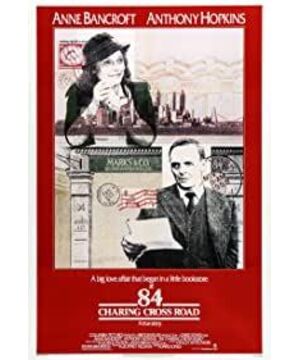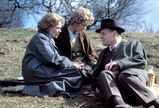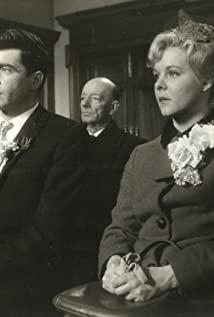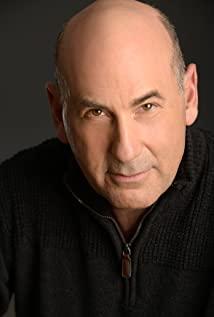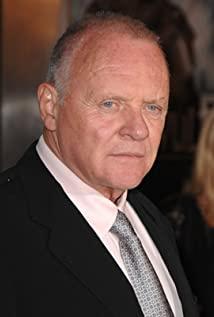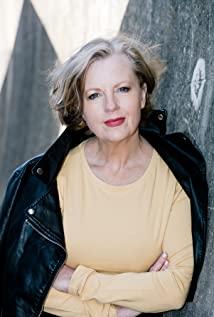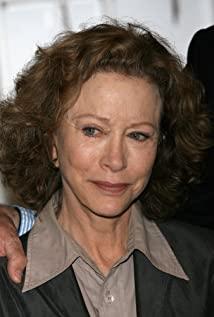But the 1987 film adaptation is really surprising, and it actually played out this story without a story while being absolutely faithful to the original. Anne Bancroft (Anne Bancroft) New York female writer Helen is funny, sharp, and a little bit irritable. Her unadorned appearance and the kind heart under the cheerful words are so fresh on the screen; contrast Frank (Anthony Hopkins), a British second-hand bookseller who always replies to letters, these two soul characters are anxious, angry, ridiculed, and laughing for old books across the ocean. It looks really interesting. . The more than ten years of correspondence between them, in addition to providing two windows to peep into the spiritual world of the two, also adds a certain possibility and a special meaning to these seemingly unrelated life fragments.
Does this mean love? Absolutely not, I think, at least it has nothing to do with the relationship between men and women; even the "spiritual partner" is an exaggeration, because the communication between Helen and Frank is all centered on buying books, and does not exceed the duty of the store and the customer. Of course, from Frank's point of view, with the addition of his wife Nara (Judy Dench), he may have a certain appreciation for Helen's different treatment, but this is by no means the subject. The most touching communication between the two is all because of books. It is the knowing smiles of people who love books cherishing each other, and it has nothing to do with love. If there is love, it is also the love of books. The person who loves books loves books. He loves the words he or she reads gently on his or her lips. Laughing out loud or getting angry for a certain paragraph, loving the dumbfoundedness and tears he or she may have shed for the book, loving the other spiritual world created by the fusion of the author's thoughts and the readers' mood, and the one who loves communication. Maybe, love the beauty of books, love reading.
Compared with the original book, the movie enriches Helen and Frank's respective life segments, such as Frank reciting Yeats' poems silently, and John Dunn's sermon read aloud by Helen - "All mankind is a book, some people die, not chapters are destroyed. be deleted, but be translated into a better language, and every chapter must be translated. God employs several translators, and some chapters are translated by age, some by disease, some by war, some by justice. And God The hand will assemble all the pages we have broken into one. In that library, all the books will be open to face each other." I am very fascinated by the way Helen often breaks the "fourth wall" in the film and expresses her heart to the audience. The approach, intimate and lovely, fits perfectly with her straight-tempered witty personality. At the end, the rhythm suddenly accelerated, cutting the letter conversations between Frank and Helen in the two worlds into one space to create the illusion of direct dialogue, which further strengthened the realism of the relationship between the two characters. "It's a tear-jerking effect.
I like the character of Frank in the movie, although compared to the original, he was put in too much emotional detail. This well-mannered ordinary British man loves his family, his children, and his shop. He is not a big man in every sense, and he is far from a "successful man" in the general sense, but his integrity is not the same as Gentleness is like sunshine that warms the small world around you, doing your best. This is one of the rare characters who has no words and no plot and is extremely moving.
I also like Helen's way of loving books - she never collects books she hasn't read, and she never treats them as ostentation. Her books are not only in hand, but also in my heart, flowing all the people and things related to reading.
View more about 84 Charing Cross Road reviews


